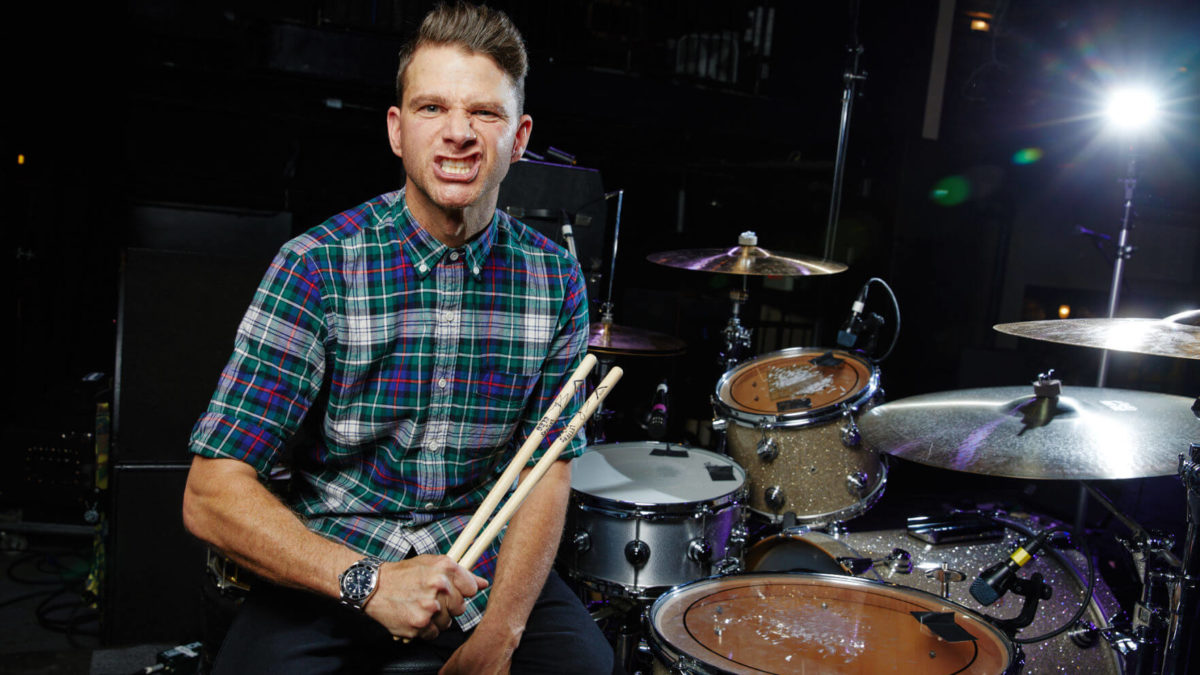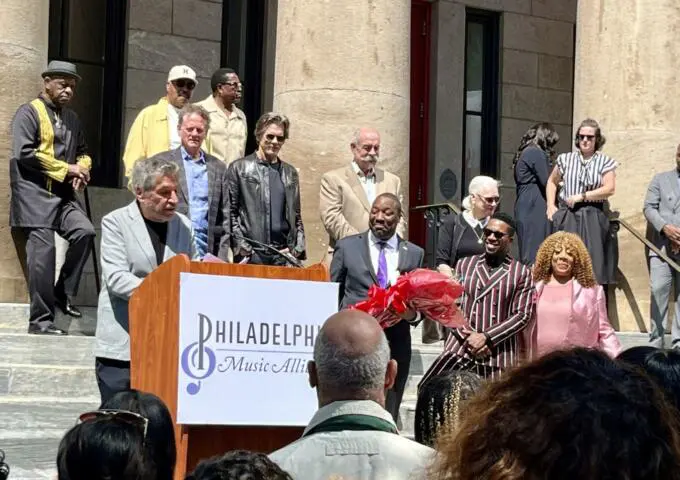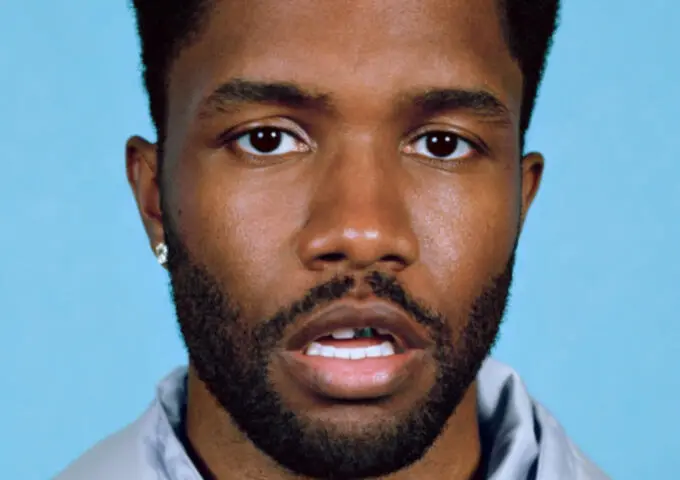For over a quarter of a century, Stacy Jones has always had both drum sticks firmly in the music world.
He got his start first as a drummer and songwriter for Letters to Cleo, a rock band which gained major traction after releasing “Here & Now,” which reached No. 10 on the Billboard Modern Rock Singles chart, and appearing in the 1999 cult classic 10 Things I Hate About You starring Julia Stiles and Heath Ledger. The band had a recent comeback thanks to the television show Parks & Recreation.
Jones then took the mic and guitar as the frontman of pop-punk band American Hi-Fi, making it big in the early 2000s with songs, like “Flavor of the Weak,” “The Art of Losing It,” “Another Perfect Day” and “The Breakup Song.”
But even with his success on the stage, Jones would find his bread and butter behind the scene. Currently, Jones is one of the most sought-after musical directors (MD) with high-profiled clients, including Miley Cyrus—also her drummer—Noah Cyrus, 5 Seconds of Summer, Broods, The Chainsmokers and Troye Sivan. Jones admitted to Philadelphia Weekly that he wasn’t entirely clear on what the job description entailed when he first entered the role, but ultimately MD means the person “producing the live show” for musical artists.
While the 47-year-old MD orchestrates brilliantly produced live concerts, bringing “raw” sound back to today’s heavily computerized music, Jones continues to tour with Letters to Cleo and American Hi-Fi as well as a drummer for Matchbox 20 since 2012.
Prepping for a “heck of a workout,” Jones will be playing back-to-back sets with American Hi-Fi and Letters to Cleo at Underground Arts on Nov. 14.
PW chatted with Jones about what he’s gleaned over his years in the music industry and what’s next for his career.
You were a writer and drummer for Letters to Cleo’s album Aurora Gory Alice. How does it feel celebrating its 25th anniversary?
Oh my god. I didn’t even know that it was.
Time flies.
Are we that old? Oh my god, we are. It’s pretty remarkable really that we are able to do these shows and that anyone would come see us after all of these years. But the other thing that I think is awesome is that we are better than ever, I think we are better than when we started out. We have all got 25 years of playing and performing and being on stage under our belts.
It’s like a fine wine, you just keep getting better with age.
Now, pretty soon we’re going to hit that age where we may start declining.
But you haven’t peaked just yet.
Yeah, you should come now while we are still somewhat young and spry.
American Hi-Fi’s last album was Blood & Lemonade in 2014. I heard you will be releasing a new EP sometime soon. Can we get any details on that?
We just finished it. It’s a five song EP, and it’s five covers. We have done cover songs in the past for soundtracks or TV shows or little one somethings, but usually those were songs that the movie or the the show specifically requested we do like, “Hey, can you cover this particular song?” This is the first time we really said, “Okay, we’re going to cover five songs that really influenced us,” and I think we might make this a yearly thing now.
We started out with late ’70s, early ’80s kind of post-punk power pop. So, it’s Joe Jackson, it’s Elvis Costello, it’s Squeeze, it’s Madness and it’s Boomtown Rats. So it’s all songs that we grew up on and influenced us in one way or another. We did it with our own little spin, and so I think that’s going to be coming out at the top of next year. And then I already have another one in the works where we’re going to move more into the ’80s.
But you are also an in-demand musical director. What elements do you look to have in a live show?
The thing that I really strive for, especially these days, is to perform as much of the music as possible with real musicians playing real instruments. That can be challenging with some of my clients who are very electronic based these days. Something I really enjoy is how are we going to make these sounds, essentially made on a computer and manipulated on a computer, come alive on a stage with a human being performing it? That’s something I really enjoy and am really proud of all the artists that I work with, because they typically instruct me like, “Hey, we don’t just want to press a space bar on a computer when we are up here and just have millions of tracks playing. We want to perform this, we to play it.”
Just as a fan of music, when I’m in the audience, I want to see these things coming at me. When I hear a certain sound that I know that’s in a song and it’s an iconic sound, I want to see somebody do it on stage, and sometimes that’s just getting a sampler or hitting a SPD or pads or triggering every keyboard. But as long as somebody is manually doing it, that’s always my ultimate goal.
How has the transition been for you being in bands from the 1990s and early 2000s to now performing and musical directing? How does your background come into play when your planning out a live performance for an artist?
Coming from that ‘90s band-oriented background, we sort of grew up with technology. So pro-tools all started coming in towards the later time of us making records. Prior to that, we had to actually perform when we made records or on the stage. There wasn’t a whole lot you could do to fix what you were doing, especially on the fly. There was no autotune, certainly, on a vocal group.
I think to your point, it’s about finding that balance for a modern show that is polished but not too polished, because you want to have some of that human element, which is that rawness and that things are not perfect. Imperfection sometimes can be really compelling I think. We’re not talking about glaring mistakes, but we’re just talking about certain field things, it’s okay if something is slightly out of tune here or there. It just gives it character and it has its own unique moment and sound. I think if you polish things too much then it just comes across as a little bit flat. I like to keep some raw elements in the shows these days.
How is it working with these big names like Miley Cyrus and the Chainsmokers?
I’ve been with Miley since she was 12 or 13 years old. So I’ve been with her since Hannah Montana, and it’s been an incredible journey watching her grow as an artist and just develop her sense of who she is in the world. It’s been incredible watching that happen.
It seems like Cyrus is always dealing with something, now she is dealing with legal trouble over allegedly ripping off “23” from a woman rapper. What do you make of all that?
Once you get that big, there is alway going to be stuff going on in the periphery.
Luckily when I’m with Miley, and we are working together, she really focuses on the music and she works so hard at making her shows the best that they can be. She has never missed a sound check on tour. I think one time she did, because she was sick—she had the flu. She has worked really hard on the music side. It has been really rewarding for me to be a part of that.
Working with artists like Chainsmokers and Troye Sivan, just seeing how they use modern technology to create this music that touches so many people has been really informative to me as well. I’ve learned a lot by working with these guys, in terms of just how people make music now. It’s been really educational and inspiring for me.
What is one thing you learned along the way?
It’s funny, a lot of people ask me if there is one thing I can tell people or give someone advice. I think the thing that I have learned, and you see this with anyone who is really big or anyone who has a really big following and is connected with an audience, is to be authentic. Be authentic, be yourself. I mean push yourself to get out of your comfort zone artistically, because I think everyone needs to grow and try different things. But at the end of the day, you have to be authentic. That’s a mistake that I have made being an artist, chasing something or having a record company call me up and say, “Hey, you need to write a song like so and so, because it is on the radio right now” and I am like, “Okay.” Then I do that and the song turns out okay, but it’s ultimately not where I was coming from. So I think being authentic is the best advice I could give anyone, and that’s something that I have learned just through decades of doing this.
Don’t just be the “Flavor of the Weak.” Bada-tsching
Ba-doom-tsch.
Sorry, I had to throw it in.
No, good job.
Letters to Cleo and American Hi-Fi | Nov. 14. 9pm. $25. Underground Arts, 1200 Callowhill St. undergroundarts.org/event/1744936-letters-cleo-philadelphia/
TWITTER: @ANDREAJCANTOR





